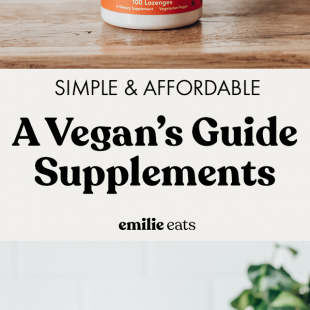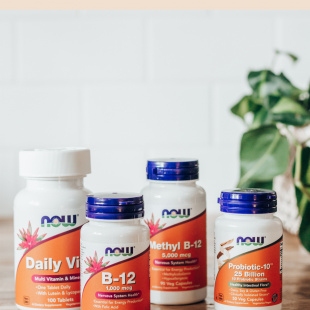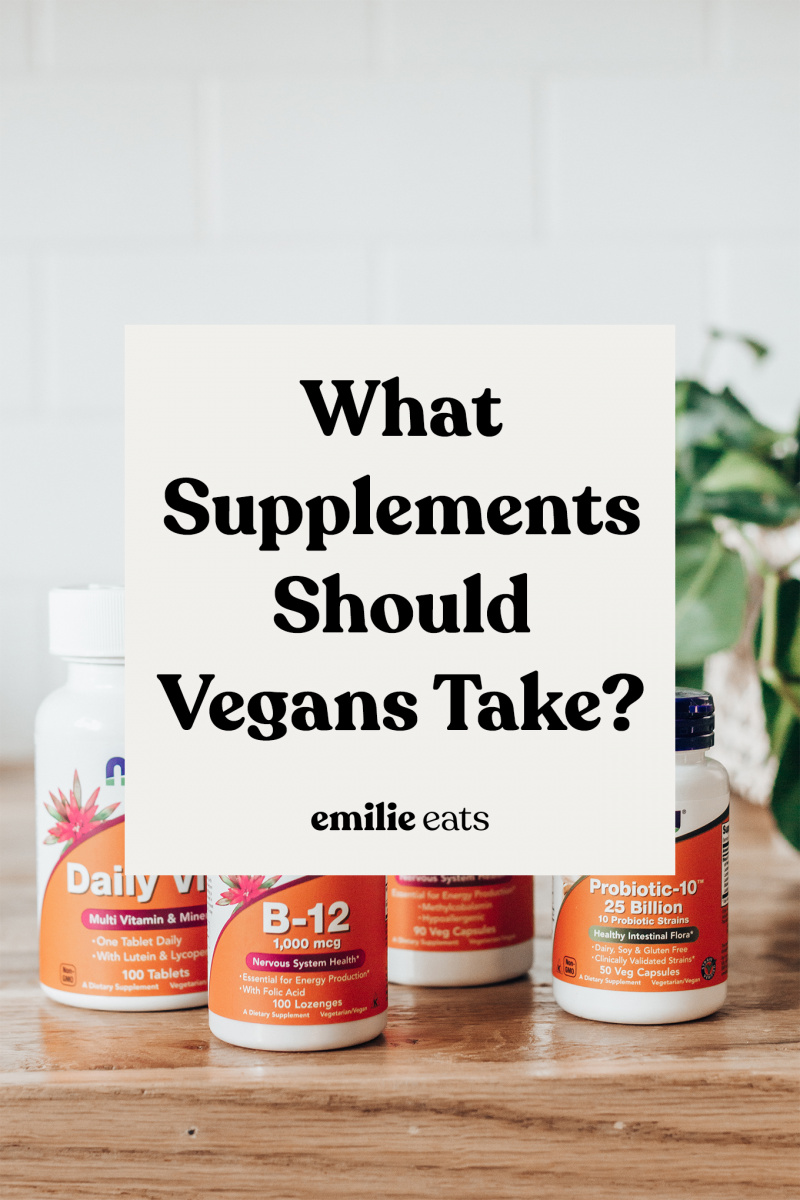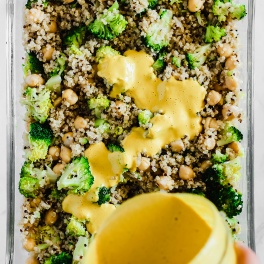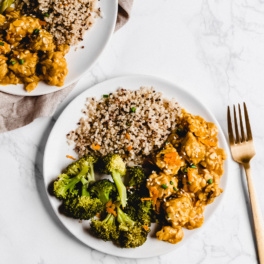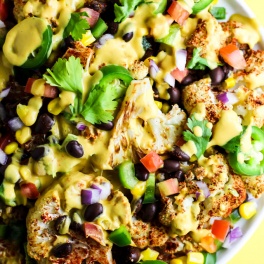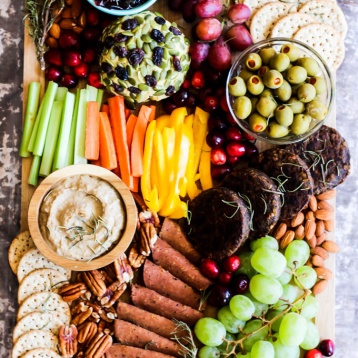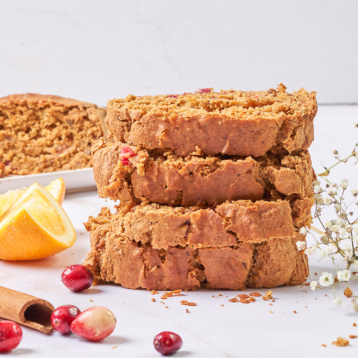What supplements should vegans take? Here is an in-depth guide to vegan supplements that you and your healthcare provider can use to determine what’s appropriate for you. In partnership with NOW Foods!
This information is not intended as a substitute for medical advice. Please consult a healthcare professional for personalized health recommendations.
A Guide to Vegan Supplements
I’m here today with lots of nutrition knowledge for y’all! A question I get all the time is “what vegan supplements should I take?” I spent hours researching for this post to give you the absolute best guide I could write while also making it simple and digestible.
I am super excited to partner with NOW® on this post! With so many supplements on the market, it can be tough to find trusted brands. It’s important to be an educated consumer and do your research to find brands you can feel good about. I have been buying NOW supplements for years because I trust that they deliver the highest quality supplements. Last June I was able to visit the NOW production site and see up-close the testing process for every single ingredient that comes through their doors. As a consumer, their rigorous product testing and standards make me feel good. You can read more about their quality and safety commitments here!
You can get $10 off $40 at nowfoods.com through 12/31 with code EMILYEATSNOW10!
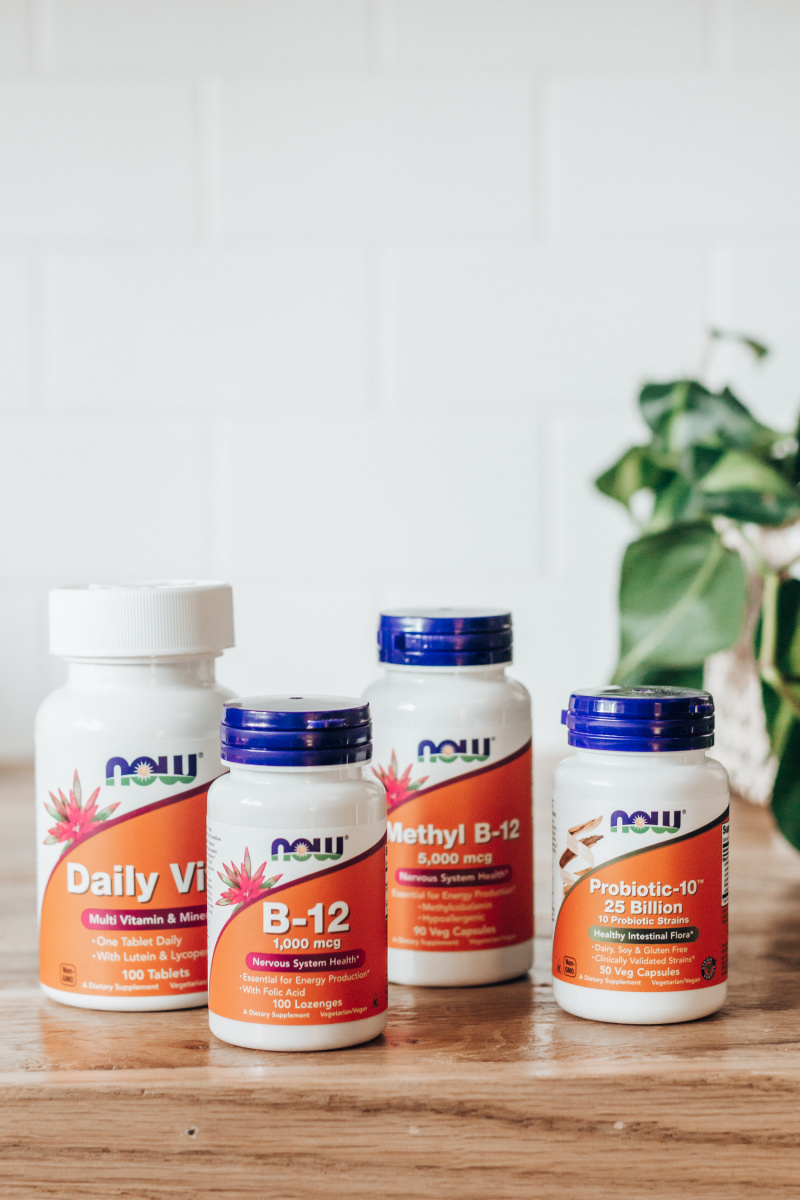
What Supplements Do Vegans Need?
Vitamin B12
B12 plays an important role in red blood cell formation, neurological function, and DNA synthesis, among other processes.*1 It is absorbed in the intestine with the help of intrinsic factor (a protein) that is produced in the stomach. Vitamin B12 and/or folate deficiency can cause megaloblastic (or macrocytic) anemia. 2 In this condition, red blood cells are too big, plus there are not enough of them.3 Vitamin B12 deficiency is common, affecting between 1.5% and 15% of the general population. 4
Animal foods and fortified foods like cereal are the major food sources of B12. Because of this, vegans should supplement B12 to avoid deficiency and negative long-term neurological effects.* NOW Foods offers a variety of B12 supplements, including a vegan 1,000 mcg supplement with folic acid. VeganHealth.org (run by vegan registered dietitians) recommend 1,000 mcg of B12 twice a week.5
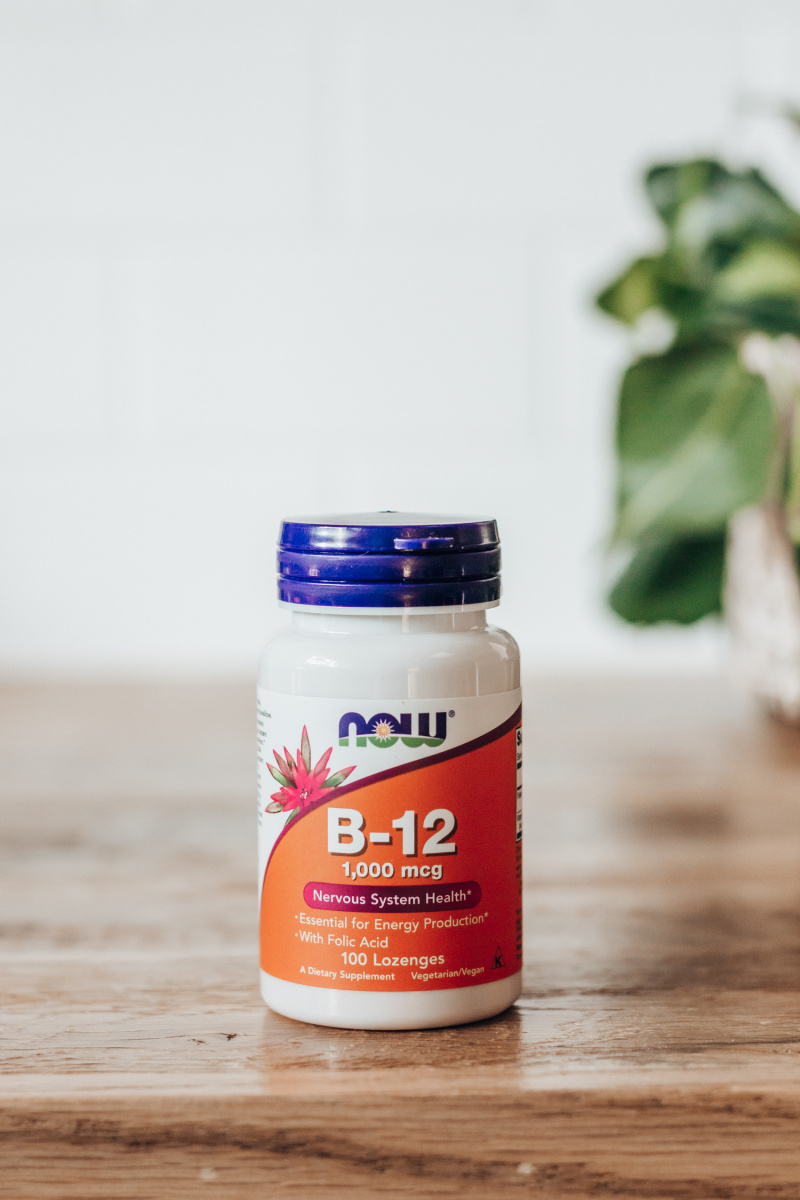
Vitamin D
Vitamin D plays a role in a variety of body systems, including maintaining bone health, the immune system, the pancreas (which secretes insulin), the cardiovascular system, muscle, and the brain.* Low vitamin D levels have been associated with decreased immune function.* Vitamin D is also associated with maintaining a positive mood.* It truly is a fascinating vitamin.
Animal foods and fortified foods are the main food sources of vitamin D. In addition, your body can make vitamin D when your skin is exposed to sunlight. However, because of skin cancer concerns, many of us wear sunscreen outside and block this production of vitamin D.
Vitamin D supplements usually contain lanolin (not vegan). Thankfully NOW carries a vegan 1000 IU vitamin D supplement. The daily recommendation for vitamin D is 600 IU for women and men ages 1-70.6 The daily UL (or the maximum) for women and men ages 9+ is 4,000 IU.7
Important note: Vitamin D is a fat-soluble vitamin. Dietary fat is essential for absorption. Make sure you’re consuming adequate healthy fats from nuts, seeds, oils, avocados, and more.
Omega-3s
Omega-3 fatty acids are polyunsaturated fatty acids. The three major Omega-3s are ALA, EPA, and DHA. We don’t have conclusive research on the health effects of omega-3s, but recent research has shown that higher levels of omega-3s may be associated with a positive mood, normal cognition, and heart health.* 8
The major food sources of ALA are flax, hemp, chia seeds, soy, walnuts, and canola oil. Therefore, vegans can easily meet the recommended amount for ALA.9
ALA can be converted into DHA and EPA. However, these conversion rates are low (9-21% for women and 0.3-8% for men).10 This is significant because the possible positive effects of omega-3 intake mentioned above are mostly associated with DHA and EPA intake.
VeganHealth.org recommends that vegans consume enough ALA daily (see their table) AND supplement 200-300 mg of DHA daily out of caution.11 Many companies offer DHA supplements made from algae instead of fish!
Iodine
Iodine is an essential part of the T3 and T4 thyroid hormones.12 According to the National Health and Nutrition Examination Surveys (NHANES), found in a 1988-1994 sample of the U.S. population that nearly 12 percent of Americans had low urine iodine concentrations. Although median values of urinary iodine in the U.S. population indicated adequate intake in the United States, the median decreased more than 50 percent between the first National Health and Nutrition Examination Survey (NHANES I, 1971-74) and NHANES III (1988-94).
The daily recommendation for iodine for adults 19+ is 150 mcg.
The major food sources of iodine are seaweed, seafood, eggs, and iodized salt. To meet recommendations, vegans should use iodized salt—1/2 teaspoon daily is sufficient.
If you want to take a supplement (for example, if you’re on a low-sodium diet), look for a potassium iodide supplement. NOW does offer a potassium iodide supplement with 225 mcg iodine per tablet. VeganHealth.org recommends against kelp tablets as they may contain too much arsenic and/or iodine.13 The maximum daily amount of iodine for those 19+ is 1,100 mcg.14
Multivitamin
If taking multiple supplements is overwhelming, don’t worry—there are many vegan multivitamins that offer essential vitamins and minerals. Taking a multivitamin could be a good way to “cover your bases” so you’re not stressed about meeting recommendations through food every single day.
The Daily Vits™ tablets by NOW are vegan-friendly and contain some of the nutrients mentioned previously, including 400 IU vitamin D, 6 mcg vitamin B12, and 150 mcg iodine per tablet. It also contains other nutrients that might help vegans meet daily recommendations, including calcium, iron, and selenium.
I love to travel with these Daily Vits™ tablets because I just have to pack one bottom of supplements instead of 3-4 bottles.
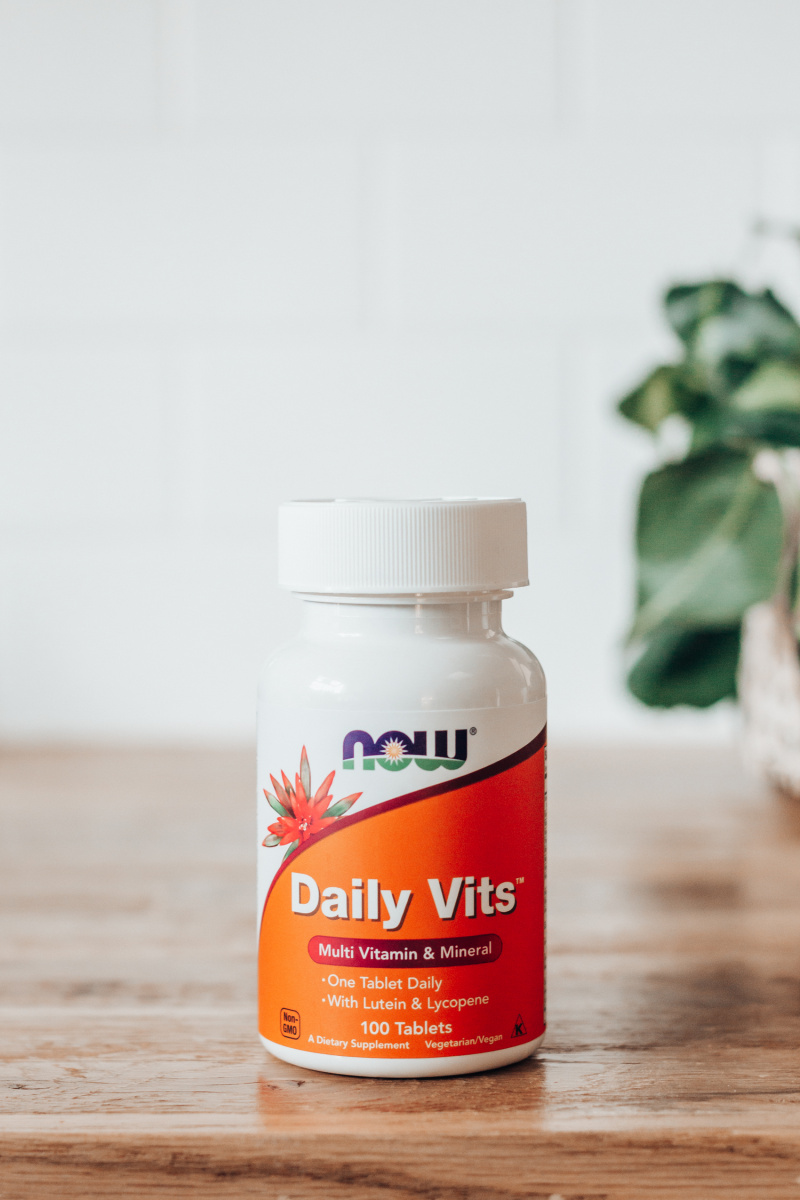
Probiotic
Research on probiotics is emerging, promising, and fascinating. Supplemental probiotics are microorganisms that can survive in the intestines and potentially have health benefits.*
I choose to take a probiotic based on the research we currently have. The NOW Probiotic-10™ 25 Billion contains 10 different probiotic strains that may promote a healthier digestive tract.*
Lactobacillus acidophilus, a mixture of Lactobacillus acidophilus and Bifidobacterium lactis, and Lactobacillus plantarum were all associated with cholesterol and LDL (the “bad” cholesterol) levels within the normal range.* 15 The NOW® Probiotic-10™ 25 Billion has all three of these species!
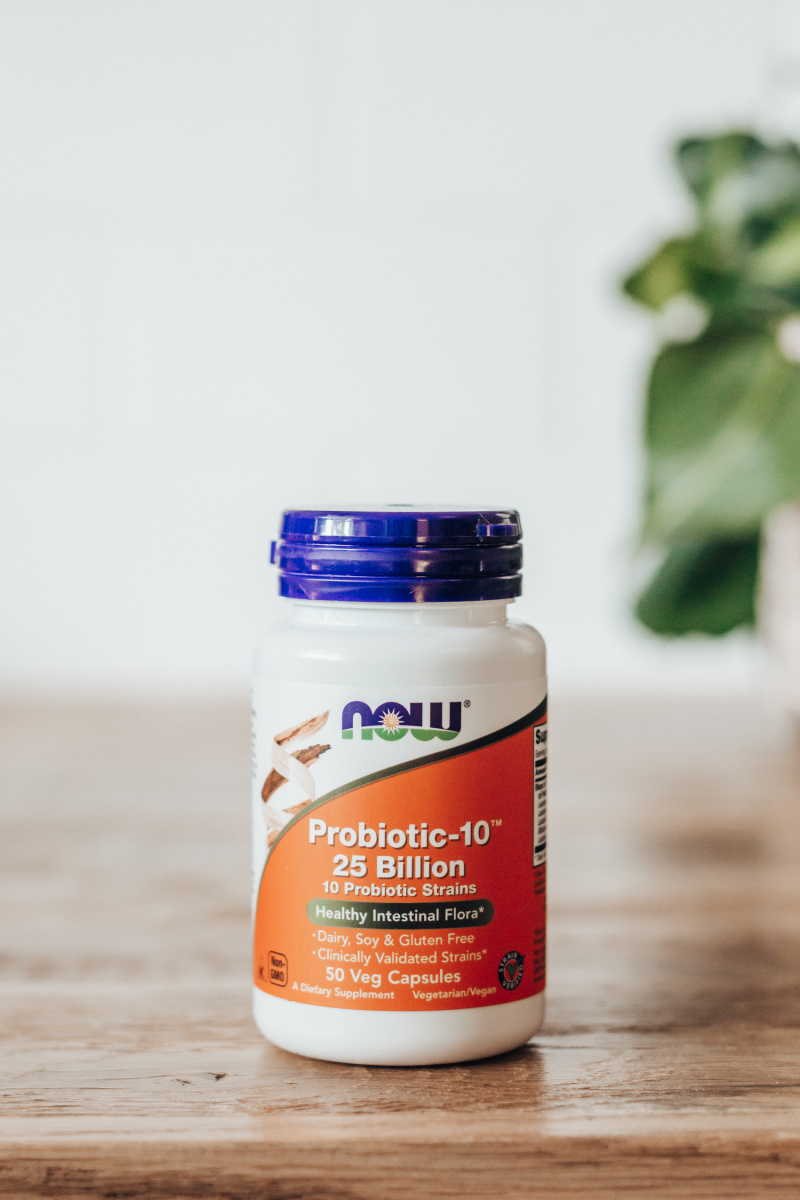
What is Vitamin B-12 and Why is it Important?
Vitamin B12 is a light-sensitive vitamin, meaning that exposure to light can degrade the vitamin. 16
Moreover, vitamin B12 deficiency is not something to ignore as the vitamin functions in red blood cell production, DNA synthesis, neurological function, and so many more processes.* Long-term deficiency can result in serious neurological issues.* [efn_note]https://www.health.harvard.edu/blog/vitamin-b12-deficiency-can-be-sneaky-harmful-201301105780[/efn_note]
One question I get often is “can I get enough B12 from nutritional yeast (or insert any other food here) so I don’t have to supplement?” My answer is no. Nutritional yeast and other food products usually come in clear plastic containers or bags. Since B12 is a light-sensitive vitamin, there is no telling how much B12 is actually in those products.
B12 supplements are safe, affordable, and effective. I’d much rather maintain my neurological health by taking a supplement than relying on an unreliable food source of B12.*
Can I Be Vegan Without Supplements?
To summarize this post, no—you can’t be a truly healthy vegan without taking supplements. A vitamin B12 supplement is absolutely necessary for vegans. Plus, with all of the research coming out about vitamin D, it’s a supplement I would feel comfortable recommending for most people. Next, an algae-based omega-3 supplement is probably a good idea for all vegans.
Do you have any questions about taking supplements as a vegan?
*These statements have not been evaluated by the Food and Drug Administration. These products are not intended to diagnose, treat, cure or prevent any disease.
Thanks to NOW Foods for sponsoring this post! I love working with brands whose products I really love and would honestly recommend. Thank you for your support!
- https://ods.od.nih.gov/factsheets/VitaminB12-HealthProfessional/
- https://www.hopkinsmedicine.org/health/conditions-and-diseases/vitamin-b12-deficiency-anemia
- https://www.hopkinsmedicine.org/health/conditions-and-diseases/vitamin-b12-deficiency-anemia
- https://ods.od.nih.gov/factsheets/VitaminB12-HealthProfessional/
- https://veganhealth.org/daily-needs/#Vitamin-B12
- https://ods.od.nih.gov/factsheets/VitaminD-HealthProfessional/
- https://ods.od.nih.gov/factsheets/VitaminD-HealthProfessional/
- https://ods.od.nih.gov/factsheets/Omega3FattyAcids-HealthProfessional/#h7
- https://veganhealth.org/daily-needs/#Omega-3-Fats
- https://www.todaysdietitian.com/newarchives/050515p14.shtml#:~:text=The%20conversion%20rate%20is%20low,9%25%20of%20ALA%20to%20DHA.
- https://veganhealth.org/daily-needs/#Omega-3-Fats
- https://ods.od.nih.gov/factsheets/Iodine-HealthProfessional/
- https://veganhealth.org/daily-needs/#Iodine
- https://ods.od.nih.gov/factsheets/Iodine-HealthProfessional/
- https://ods.od.nih.gov/factsheets/Probiotics-HealthProfessional/#h3
- https://pubchem.ncbi.nlm.nih.gov/compound/Cyanocobalamin#section=Stability-Shelf-Life

